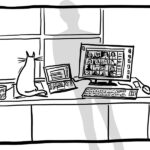More telecommuting means less pressure on the hospital to expand facilities.
OB spoke to executives at firms in a variety of sectors to see how the pandemic has transformed their businesses and how they see the future of the workplace evolving in a post-pandemic world.
In the next of our series of interviews with business leaders, Dr Danny Jacobs, president of Oregon Health and Sciences University (OHSU), points out the long-lasting benefits of more employees working from home.
At Oregon Health and Science University, there is no going back to business as usual.
“We have had to reevaluate everything, from how and when we see patients to how we use our current space,” says president Danny Jacobs. “We are organizing in a way that keeps us prepared for the next pandemic.”
The organization had 39% of employees working from home in November 2020, up from 4% this time last year. Telemedicine visits have jumped by 800%. Jacobs expects the trend toward telemedicine to increase as mobile fitness-tracking technology, like Jawbone and the Apple Watch, becomes more sophisticated.
Employees and team leaders at OHSU have been instructed to sort out whether or not full-time remote work is possible on a case-by-case basis. While many technical positions are required on-site, having full-time remote workers will become a normal part of OHSU’s operation.
Not only does more remote work allow for better distancing, it also saves money. The organization projects approximately 2% annual growth in staff each year. More telecommuting will mean less pressure to expand its facilities.
Another big, permanent change is extended hours of operation. Clinics are open on the weekends and in the evenings. These changes will remain as social distancing is not expected to become a thing of the past any time soon.
The pandemic has also caused the organization to focus on social determinants of health as evidence shows communities of color are more severely impacted by COVID-19. OHSU has established testing facilities at the Portland Convention Center and Hillsboro Stadium. These types of clinics will serve as a “test drive” for the eventual distribution of a COVID-19 vaccine.
“We are at a point where your ZIP code can tell us more about your health than your genetic code,” says Jacobs.
To subscribe to Oregon Business, click here.







